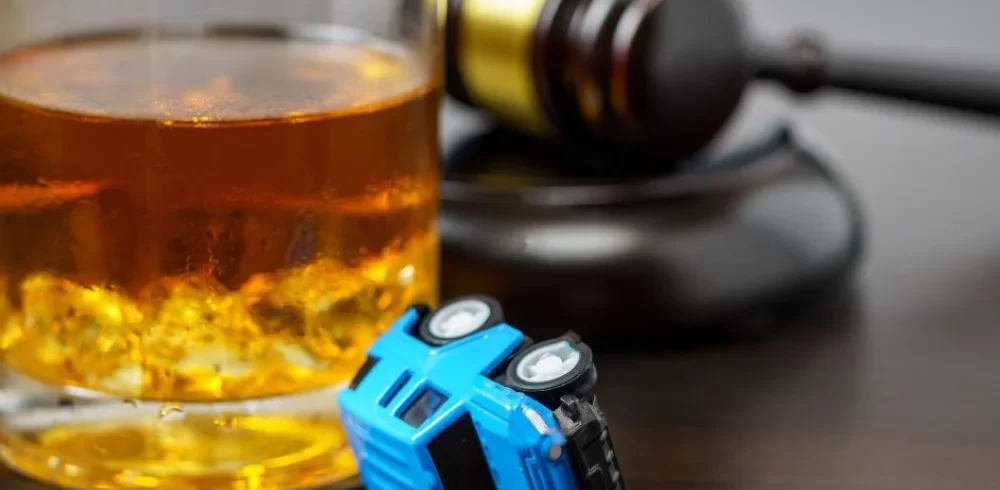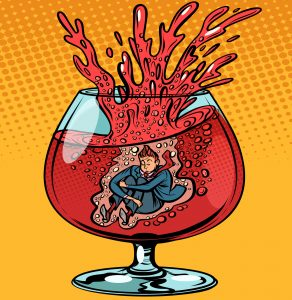Michigan High BAC Cases – Super Drunk DUI

In our roles as Michigan DUI lawyers, my team and I handle a lot of High BAC (super drunk) cases. Chances are, anyone reading this article has either been arrested for, or is looking for information on behalf of someone who was cited for Operating While Intoxicated (OWI) with a BAC of .17 or greater. In this article, we’re going to look at what High BAC offenses are all about, and also examine why they’re often not as bad as they often seem at first.

Even if the evidence in the evidence is strong in a High BAC (super drunk) case, many times, my team and I can negotiate a plea bargain down to a lesser offense for our client and protect him or her from being convicted of the super drunk offense. This will allow him or her to avoid a conviction and potential penalties for the more serious offense by taking of a deal that allows them to plead to something less severe. Of course, the first order of business in every DUI case is to try and find a way out of the matter completely, but when that can’t happen, a plea bargain that avoids a super drunk conviction is always a good thing.
Michigan’s super drunk (High BAC) law was enacted later, in 2010. The idea was to provide additional and more severe penalties, including tougher license restrictions whenever someone is convicted of driving with OWI OWI (Operating While Intoxicated – the technical, legal term for drunk driving in Michigan) with a BAC 0f .17 or greater.
Before we examine the enhanced potential penalties in Michigan High BAC cases versus regular OWI cases, we need to understand the critical importance of that word potential. Fortunately, in the real world, there is often a huge difference between what is listed in the law as potential penalties and those that are actually imposed in any given case.
For example, the one thing most people fear most – jail – can usually be avoided in 1st offense DUI cases, and a High BAC (super drunk) case IS a 1st offense.
The bad news (and it’s not all that bad, given that jail can often be kept off the table) is that another important consequence – the driver’s license sanction – is not “potential,” but rather is certain, and mandated by law. In other words, for anyone convicted of a High BAC DUI, the license penalties must be imposed just as they are written. To make this all clear, let’s first review the potential legal penalties in a Michigan High BAC cases, then look at what tends to happen in the real world:
- A fine of up to $700, plus court costs
- A maximum of 180 days in jail
- Up to 360 hours of community service
- 6 points on driving record
- Mandatory completion of an alcohol treatment program
- A suspended driver’s license for 1 year – However, after the first 45 days of no driving, a person can obtain a restricted driver’s license for the remaining 10 and 1/2 months after installation of an ignition interlock device in his or her vehicle.
What’s listed above is really a mixed bag of unlikely, possible, and certain consequences. Some, like jail, can be avoided, while others, like the driver’s license penalty, MUST be imposed. This leave many of the others as simply “possible.”
Now, let’s look back at them with an eye toward what a person can actually expect to happen in real world Michigan High BAC cases:
• The fine: When the law mandates a fine of up to a certain amount, plus court costs, the total you’ll pay is usually the full amount, or close to it.
Were You Charged With A DUI In Michigan?
Your Best DUI Defense Starts Here. We'll Protect You and Your Future
To be sure, some courts are more expensive than others, but practically speaking, nobody is going to walk out of court in one of these cases with a bargain deal on fines and costs.
• Jail: In more than 35 years handling DUI cases, our firm has had unsurpassed success in avoiding jail altogether for our clients, even in High BAC cases.
This may cause one to wonder, “Then why have a ‘maximum’ potential jail term if it’s almost never handed out?” Well, there is a good explanation:
Realistically, any and everyone convicted of a 1st offense DUI is going to be placed on some kind of probation, and, as part of that, will have to refrain from certain things, like consuming alcohol, getting into any more legal trouble, or using any drugs (including recreational marijuana).
He or she will also have to do certain other things, like attend alcohol counseling, and provide periodic breath and/or urine samples to ensure compliance with the “no drinking and no drugs” requirement.
Probation in Michigan High BAC cases will usually last for anywhere between 1 and 2 years (typically in blocks of either 12, 18, or 24 months).
If a person fails to comply with his or her probationary order, (often, this happens because of a missed or positive alcohol or drug test) he or she will be violated, and can be incarcerated for any amount of the unserved portion of that maximum jail term:
-
- In the real world, a good lawyer may be able to get a break for his or her client’s first probation violation, but even then, the person is likely to have the frequency of his or her testing increased.
- If he or she misses or fails another test, then a short jail stint may be imposed.
- If he or she screws up again, then the Judge is likely to give him or her even more time behind bars to “think about things.”
The practical pattern is that a person will usually get progressively more jail for each violation, but at about the 3rd time around, he or she has probably exhausted the Judge’s patience and will get hit with even more jail time. That, in large part, is why the “up to” jail time matters.
• Community service: Although doing anywhere near the 360 potential hours of community service is extremely unlikely in any case, some of it may be on the menu, depending on the court and the Judge. In practice, some courts always require community service, and others never do. Community service, like so much else about DUI cases, is really dependent on the location where your matter will be decided.
• Points: The 6 point penalty for a conviction in Michigan High BAC cases is mandatory, and nothing can be done to avoid them, short of avoiding a conviction altogether.
• Counseling: The law requires the completion of some kind of alcohol counseling and/or treatment program upon conviction for an OWI with a BAC of .17 or higher. While a Judge doesn’t have any discretion to NOT impose this, it is much better if, as part of an intelligent defense strategy, a person enters into the right kind of counseling early on, rather than just waiting for the court to send him or her to whatever program it uses in its jurisdiction. My team and I work closely with our clients to make sure that happens.
• Driver’s license suspension/restriction: Just like the points that go on a person’s license, this penalty is automatic, mandatory, and, moreover, the court has no ability to modify any part of it. Once the Michigan Secretary of State receives notice that a person has been convicted of a High BAC (super drunk) DUI, the license sanctions kick-in automatically. The Judge cannot change them in any way, no matter what:
The first thing that happens is the suspension of a person’s driver’s license for 1 year. This can be a bit confusing, because it’s only during the first 45 days that he or she is completely prohibited from driving.
After that, the person becomes eligible for a restricted license if he or she gets an approved breath alcohol ignition interlock device (BAIID) installed in his or her vehicle.
The terms of the restricted license means that a person to ONLY drive with the interlock device installed, and only for these reasons as specified by law:
- In the course of the individual’s employment or occupation.
- To and from any combination of the following:
- The individual’s residence.
- The individual’s work location.
- The court probation department.
- A court-ordered community service program.
- An educational institution at which the individual is enrolled as a student.
- A place of regularly occurring medical treatment for a serious condition for the individual or a member of the individual’s household or immediate family.
- An ignition interlock service provider as required.
- While driving with a restricted license, the individual shall carry proof of his or her destination and the hours of any employment, class, or other reason for traveling and shall display that proof on a peace officer’s request.
There are no exceptions, meaning there cannot be any additions or modifications to the reasons listed above. The reader probably cannot imagine how often, after being advised of this, people will immediately ask some question about driving that begins with language like. “Well, how am I supposed to….?” Or, “How do they expect me to…?”
The answer is simple: That’s part of the penalty. A restricted license is supposed to hurt; it’s supposed to be inconvenient. It’s an intermediate punishment between doing nothing and taking someone’s driving privileges away altogether, and is designed to allow him or her to “get by” (even if barely), but nothing more.
The reader may have noticed that there is no allowance for grocery shopping, or going to the gym, or anything like that. This is by design. It is intended to be hard for the remaining 10 and 1/2 months a person must drive on a restricted license. The law was written so a person can drive for work, school, necessary medical treatment, and whatever the court requires him or her to do, but that’s it.
Although everyone convicted of a High BAC (super drunk) DUI does manage to “get by,” it is our job, as Michigan DUI lawyers, to do everything possible to avoid these consequences by properly fighting the case and either beating it outright, or negotiating some kind of deal to a lesser offense.
In other words, we have to manage it. No matter what the facts or circumstances, the gold standard never changes:
Success in a DUI case is always best defined by what does NOT happen to you.
This is why it’s so important for my team and I to bring about the very best results, which specifically means avoiding as many of the legal penalties and negative consequences as possible. Often, this is done by way of a plea bargain.
Like so much about the law, any examination of High BAC (super drunk) cases could go on forever, but at least as an overview, what we’ve gone over in this piece covers the essentials.
If you’re facing any kind of DUI charge and looking for a lawyer, be a savvy consumer and read around. If your case is pending here, in the Greater-Detroit area (meaning Wayne, Oakland, Macomb or the surrounding counties), give our office a ring at either 586-465-1980. or any of the other numbers on this blog, or our website (they all go to the same place)
All of our consultations are free, confidential, and done over the phone right when you call. My team and I are very friendly people who will be glad to answer your questions, explain things, and even compare notes with anything some other lawyer has told you.







